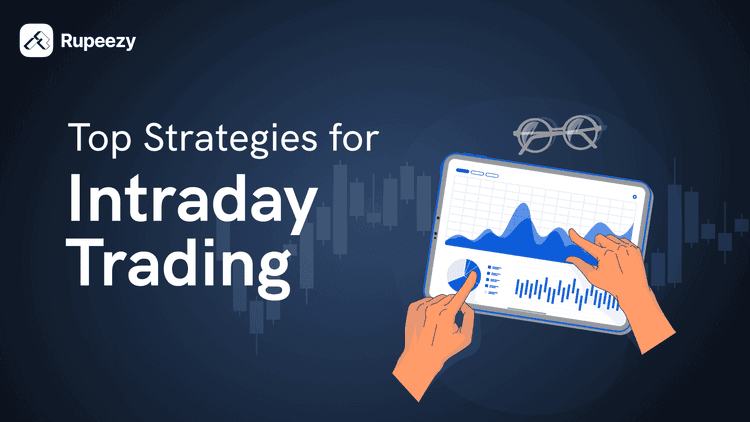NSE vs BSE – Key Difference Between NSE and BSE Explained


00:00 / 00:00
Have you ever wondered where your stock market investments actually go? You’ve likely heard of the NSE and BSE, the two major players that dominate financial news. But do you really know what differentiates them? Although they appear to be two sides of the same coin, it is important to understand the differences that could influence your investing, trading, or market interpretations.
In this article, let us dive into the world of the National Stock Exchange and the Bombay Stock Exchange, and understand the main difference between NSE and BSE.
What Is NSE (National Stock Exchange)?
The National Stock Exchange is one of India’s premier stock exchanges and plays a critical role in the functioning of the country’s financial markets. It was established in 1992 with the vision to modernize India’s capital market infrastructure, where it introduced a fully automated and electronic trading platform, making it the first of its kind in India.
The primary function of the NSE is to act as a bridge between investors and companies, allowing businesses to raise capital while giving individuals and institutions access to investment and trading opportunities. Furthermore, it also provides a platform for investors and institutions to buy and sell various financial instruments, such as equities, indices, mutual funds, derivatives, currency, and commodity derivatives.
Out of various indices, NIFTY 50 is the benchmark, which represents a diversified portfolio and tracks the 50 largest companies listed on NSE, covering various sectors of the Indian economy such as banking, IT, energy, pharmaceuticals, and more. It acts as a benchmark to measure the overall performance of the Indian stock market.
What Is BSE (Bombay Stock Exchange)?
The Bombay Stock Exchange is Asia’s oldest stock exchange, which dates back to 1875 and is headquartered in Mumbai.
It holds historical and financial significance in India’s capital markets, which facilitates the trading of equity, currencies, derivatives, debt instruments, and mutual funds. Like NSE, the Bombay Stock Exchange also serves as the link between companies seeking to raise capital and investors looking to grow their wealth.
Like NSE, there are various indices associated with BSE, out of which the Sensitive Index, shortly referred to as Sensex, is the benchmark, which was introduced in the year 1986. It comprises of 30 largest companies listed on the Bombay Stock Exchange across various sectors.
7 Key Difference Between NSE and BSE You Should Know
While NSE and BSE share the same fundamental role, they differ in several aspects. This NSE vs BSE comparison outlines the key distinctions between the two exchanges:
Nature | National Stock Exchange (NSE) | Bombay Stock Exchange (BSE) |
Establishment | NSE was established in 1992 and is a relatively new-age stock exchange built to modernize India’s financial markets with electronic trading. | BSE was established in 1875 and it is the oldest stock exchange in Asia, with deep historical roots in India’s financial domain. |
Benchmark Index | NIFTY 50 is the benchmark index that tracks the top 50 companies across different sectors that are listed on the NSE. | SENSEX is BSE’s key index, representing the top 30 companies across different sectors that are listed under BSE. |
Volume | NSE has a higher trading volume. | BSE has a lower trading volume than NSE. |
Listed companies | As of December 2024, 2,629 companies are listed under NSE. | As of February 2025, there were 5,595 companies that are listed under BSE, which is comparatively more than NSE. |
Liquidity | Higher liquidity when compared to the BSE. | Lower liquidity when compared to the NSE. |
Electronic trading platform | NSE was incorporated with an electronic trading platform during its inception. | BSE Online Trading was incorporated in 1995. |
Trading network | NSE’s network is huge when compared to BSE and is seen in over 1,500 cities. | BSE has a network of over 450 cities. |
Similarities Between NSE and BSE
Now that we have understood the difference between NSE and BSE, let’s have a look at the similarities of these two stock exchanges:
1) Trading platform
One of the significant similarities between NSE and BSE is that they both are trading platforms where you can buy and sell various companies’ stocks.
2) Regulatory authority
Both NSE and BSE will follow the rules and regulations of SEBI (Securities and Exchange Board of India).
3) Technology
NSE was established as an electronic trading platform, and BSE introduced its electronic trading system in 1995. This makes both exchanges technologically advanced for their users.
4) Operational hours
The trading hours of NSE and BSE are the same. The opening time is 9:15 am and closes at 3:30 pm every day from Monday to Friday. Furthermore, both exchange platforms do not operate during market holidays.
5) Financial instruments
NSE and BSE both offer a wide variety of financial instruments like equities, derivatives, mutual funds, ETFs, etc.
NSE vs BSE Charges
Let’s take a closer look at the NSE vs BSE charges. This includes BSE and NSE transaction charges, STT, GST, stamp duty, and other applicable fees:
Nature | Equity Delivery | Equity Intraday | Futures | Options |
Transaction charges | (Buy;Sell) NSE: 0.00297% BSE: 0.00375% | (Buy;Sell) NSE: 0.00297% BSE: 0.00375% | (Buy;Sell) NSE: 0.0019% BSE: 0 | (Buy;Sell) NSE: 0.03503% (on premium) BSE: 0.0325% (on premium) |
STT | (Buy;Sell) 0.1% | (Sell) 0.025% | (Sell) 0.02% | (Sell) 0.1% (on premium) |
IPFT | (Buy;Sell) NSE: Rs 10 / crore BSE: 0 | (Buy;Sell) NSE: Rs 10 / crore BSE: 0 | (Buy;Sell) NSE: Rs 10 / crore BSE: 0 | (Buy;Sell) NSE: Rs 50 / crore BSE: 0 |
GST | 18% (on brokerage + transaction charges + SEBI charges) | 18% (on brokerage + transaction charges + SEBI charges) | 18% (on brokerage + transaction charges + SEBI charges) | 18% (on brokerage + transaction charges + SEBI charges) |
Stamp duty charges | (Buy) 0.015% / crore | (Buy) 0.003% / crore | (Buy) 0.002% / crore | (Buy) 0.003% / crore |
SEBI charges | Rs 10 / crore | Rs 10 / crore | Rs 10 / crore | Rs 10 / crore |
Benefits of Trading on NSE and BSE
Below are some of the key advantages that make the NSE and BSE preferred trading platforms for investors and companies across India.
1) Market visibility
NSE and BSE are the top Indian stock exchange platform that provides companies with greater visibility and access to a wider pool of investors, boosting their market presence.
2) Liquidity
Since a large number of investors trade in NSE and BSE, both exchange platforms provide a liquid market to their investors, allowing them to easily buy and sell securities without significant price fluctuations.
3) Transparency
NSE and BSE are both regulated by SEBI, which ensures fair and transparent trading for all investors.
4) Capital raising
Obtaining a listing on the NSE and BSE offers companies a way to tap into public capital. This enables them to raise funds through equity offerings or debt issuance to support growth, expansion, and various strategic initiatives.
5) Timely disclosures
Firms on both the exchange platforms are required to publish regular financial reports, keeping investors informed and encouraging responsible governance.
6) Collateral use
Shares listed on NSE or BSE can be used as collateral to secure loans from financial institutions, which increases financial flexibility.
Why Is There a Price Difference Between NSE and BSE?
Even though the same stock may be listed on both the National Stock Exchange (NSE) and the Bombay Stock Exchange (BSE), you might notice a slight difference in prices.
This happens mainly due to differences in demand and supply on each platform. At any given moment, the number of buyers and sellers can vary between the two exchanges, which causes the price to shift slightly.
NSE also tends to have higher trading volumes compared to BSE, which results in quicker price movements and narrower price gaps.
Since both exchanges operate on separate trading systems, there can also be tiny delays or time lags in how prices are updated, contributing to the variation.
Additionally, some traders take advantage of these price differences through a strategy called arbitrage, i.e., buying on one exchange and selling on the other, which helps reduce the gap, but small differences can still exist momentarily. Overall, it’s a result of real-time market dynamics and technical factors.
NSE vs BSE - Which One Is Better for You?
When comparing the National Stock Exchange and the Bombay Stock Exchange, several key differences come into play that can influence where you choose to invest.
Firstly, NSE has a comparatively higher trading volume and liquidity, making it the preferred choice for active traders and institutional investors. Its robust and automated trading platform ensures faster execution of trades with minimal price fluctuations, which is ideal for intraday trading and derivatives.
On the other hand, BSE is Asia’s oldest stock exchange and has a broader listing base. Additionally, BSE is a strong option for investors who are interested in exploring a wider range of companies.
Therefore, choosing the better platform will ultimately depend on your investment strategy and goals.
Conclusion
Both the National Stock Exchange (NSE) and the Bombay Stock Exchange (BSE) are pillars of India’s financial markets, each offering unique strengths to investors. While NSE stands out for its advanced technology, high liquidity, and popularity among active traders, BSE holds its ground with a rich legacy, broader company listings, and appeal to long-term investors.
Ultimately, the better platform depends on your investment style and objectives. Whether you prefer the fast-paced environment of NSE or the diverse options available on BSE, both exchanges provide reliable, regulated avenues to grow your wealth. Making informed choices based on your goals will always be more important than choosing one platform over the other!
FAQs
Q1. What are some key differences between NSE and BSE?
The key differences between NSE and BSE are the benchmark index, the trading volume, the number of listed companies, liquidity, and the trading network.
Q2. NSE or BSE - Where can a beginner invest?
A beginner can invest through both NSE and BSE. You don't directly choose one over the other.
Q3. How can an investor choose the right stock exchange?
Instead of directly picking between the NSE and BSE, it's more helpful to think about choosing the right gateway to these exchanges – your stockbroker.
Q4. Do NSE and BSE offer different stocks?
Sometimes, yes. While many large and well-known companies are listed on both exchanges, some smaller or newer companies might be listed on only one.
Q5. Is it safe to invest through both NSE and BSE?
Yes, it is safe to invest through both NSE and BSE. Both are regulated by SEBI (Securities and Exchange Board of India), which makes sure the market is fair and protects investors. Your safety depends more on choosing good stocks and a reliable broker.
Check Out These Related Articles |
The content on this blog is for educational purposes only and should not be considered investment advice. While we strive for accuracy, some information may contain errors or delays in updates.
Mentions of stocks or investment products are solely for informational purposes and do not constitute recommendations. Investors should conduct their own research before making any decisions.
Investing in financial markets are subject to market risks, and past performance does not guarantee future results. It is advisable to consult a qualified financial professional, review official documents, and verify information independently before making investment decisions.
Open Rupeezy account now. It is free and 100% secure.
Start Stock InvestmentAll Category









